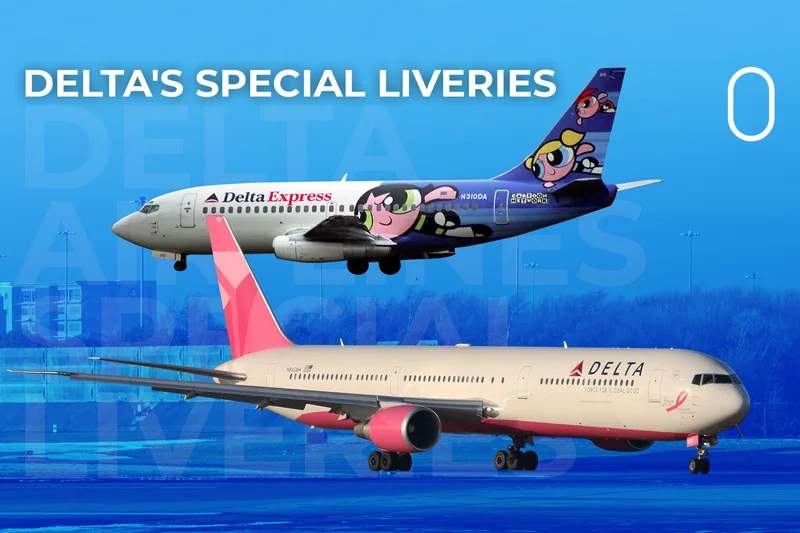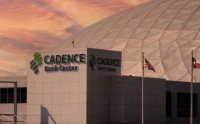So, the CEO of Delta, Ed Bastian, comes out and says a flight from Atlanta to New York was faster in the 1950s than it is today. My first thought? He's finally admitting what we've all been feeling for years: flying in America is a slow-motion regression. It's not about progress anymore; it's about managing the decay.
Bastian blames the air traffic control system, and offcourse he's right. He talks about controllers staring at screens that look like props from a '70s disaster movie. You can almost picture it: a dim room, the low hum of ancient electronics, a guy with a coffee-stained tie trying to guide a multi-billion dollar fleet of jets using tech that would be rejected by a high school computer lab.
This isn't just about a government shutdown making things temporarily awful. This is the baseline. The shutdown is just pulling back the curtain on a system that was already broken, brittle, and begging to fail.
We're running the most complex airspace in the world on a foundation of digital asbestos. It's like trying to stream 4K video over a dial-up modem. And we're all just sitting in our cramped seats, paying for Wi-Fi that doesn't work, pretending this is normal.
The Great Unfunded Promise
Naturally, the moment a powerful CEO complains, politicians spring into action. Or, well, they spring into announcing action. President Trump and Secretary Duffy step up to the podium and promise a brand new, shiny system that "will be the envy of the world." They talk about satellite tech, new coordination hubs, and all the other buzzwords that sound great in a press release.
It's a fantastic speech. A real barnburner. There's just one tiny little problem.
The price tag.
Projections put the cost somewhere between $12.5 billion and a whopping $31 billion. And the plan for funding this world-envying system? Crickets. No details. Just a vague promise that it'll happen. This is a bad plan. No, 'bad' doesn't cover it—this is political theater of the highest order. They're selling us a ticket to a utopia they have absolutely no intention of building.
Are we really supposed to believe that an administration bickering over a few billion for a border wall is suddenly going to find $30 billion for FAA infrastructure? Give me a break. What happens when the news cycle moves on? Does the plan just get filed away in a cabinet labeled "Expensive Ideas We Can't Afford"?

Meanwhile, the people actually doing the work—the air traffic controllers—are being treated like essential appliances. They're expected to show up, guide planes full of people safely through the sky, and do it all without a paycheck because the government is in a self-imposed coma. The National Air Traffic Controllers Association is practically screaming that the system is fragile and understaffed, and what do they get? A pat on the head and an IOU.
It's a special kind of corporate and political dissonance. It's funny, in a dark way, that Delta's CEO is the one complaining. This is the same airline that has built its fleet strategy around squeezing every last drop of life out of its ancient, out-of-production Boeing 757s, a move that helps explain How Delta Air Lines Became The World’s Largest Operator Of This Aircraft. They're the masters of making old tech work. But I guess it’s one thing to lovingly maintain your own vintage car; it’s another to be forced to drive it on a road full of potholes built by someone else.
We're All Just Beta Testers Now
So here we are, stuck in the middle. The system is creaking, the controllers are stressed, and the government's solution is a ghostwritten check. Every time you board a flight, you're basically rolling the dice. Not on safety, as Bastian was so quick to reassure us—"it is absolutely safe," he says, because the people are pros. But you're gambling on whether the system itself can handle the load.
Will your flight be delayed for hours because a single controller at Burbank called in sick? Will you get diverted because the antiquated system can't manage a little bad weather over Chicago? Probably.
We have access to tools like the FAA's National Airspace System Status site, which is supposed to give us a heads-up. It's the modern solution to an ancient problem: give the consumer a dashboard to watch the system fail in real-time. We can track our own misery. How innovative.
The truth is, we've accepted a ridiculous bargain. We've allowed the foundational infrastructure of air travel to degrade to the point where a CEO comparing it to the Eisenhower administration is considered a bold truth-teller. This isn't a temporary glitch caused by a shutdown; it's a chronic illness. The shutdown is just a fever spike that reveals how sick the patient really is.
And the cure they're offering is a miracle drug that doesn't exist yet, with a price no one is willing to pay. So we'll just keep getting these "turbulence events" and flight diversions and staffing shortages... until what? Until the delays become so common that we start celebrating the flights that actually arrive on time?
Maybe that's the endgame. Manage expectations so low that basic functionality feels like a first-class upgrade. After all, if they can sell you on a Delta Airline Offering $26 First Class Upgrades on Select Flights, they can definitely sell you on the idea that a system from the 1970s is "good enough."
So, We're Just Supposed to Trust the Process?
Let's be real. This isn't getting fixed. Not in any meaningful way. We'll get some patchwork funding, a few token upgrades to quiet the airlines for a year or two, and then we'll be right back here the next time a budget fight shuts down the government. The grand, $31 billion plan will die a quiet death in a congressional subcommittee. The fundamental problem—a lack of sustained, long-term investment in critical infrastructure—is a feature, not a bug, of our political system. We're just living with the consequences, one 2.5-hour delay at a time.









